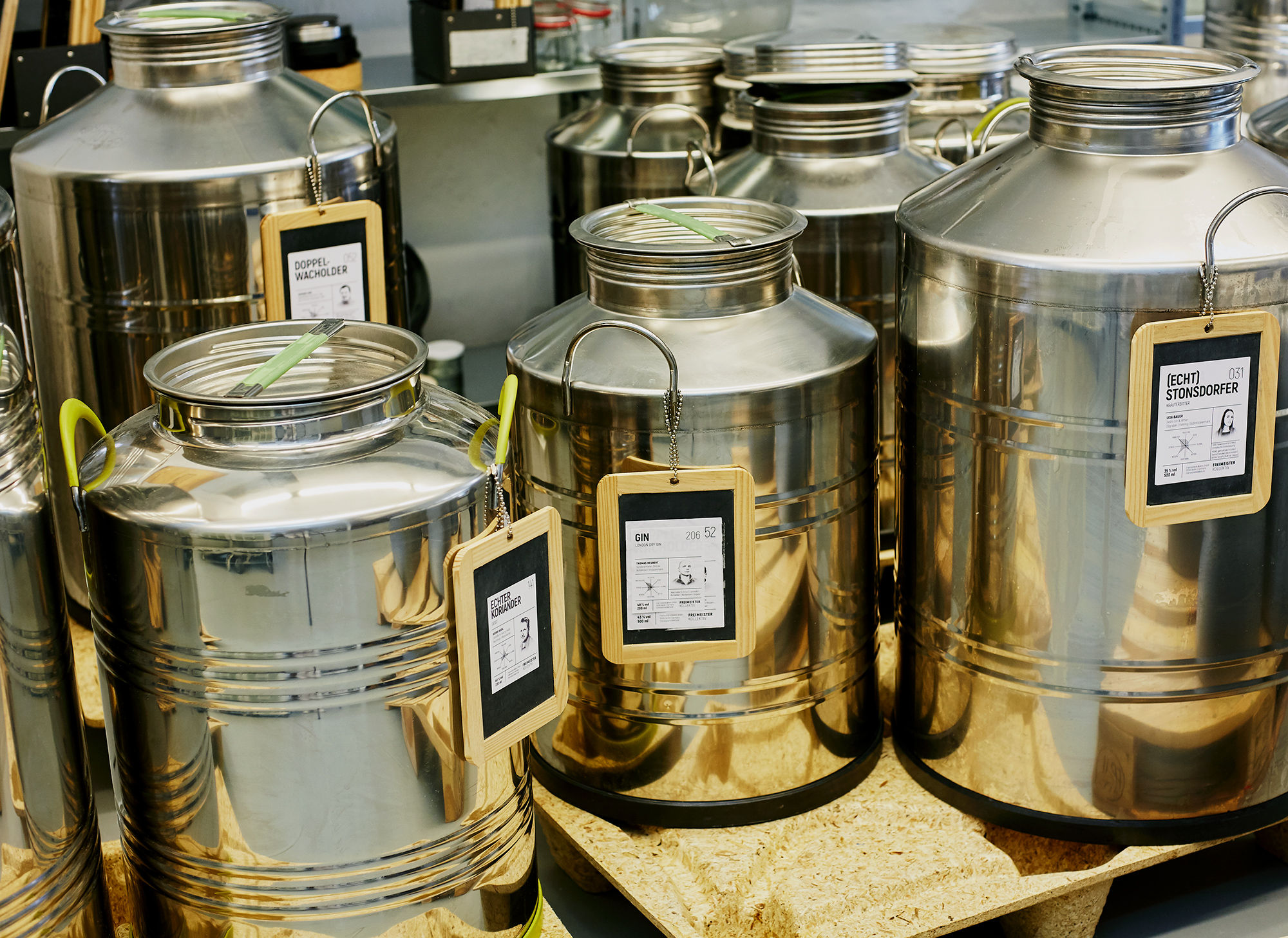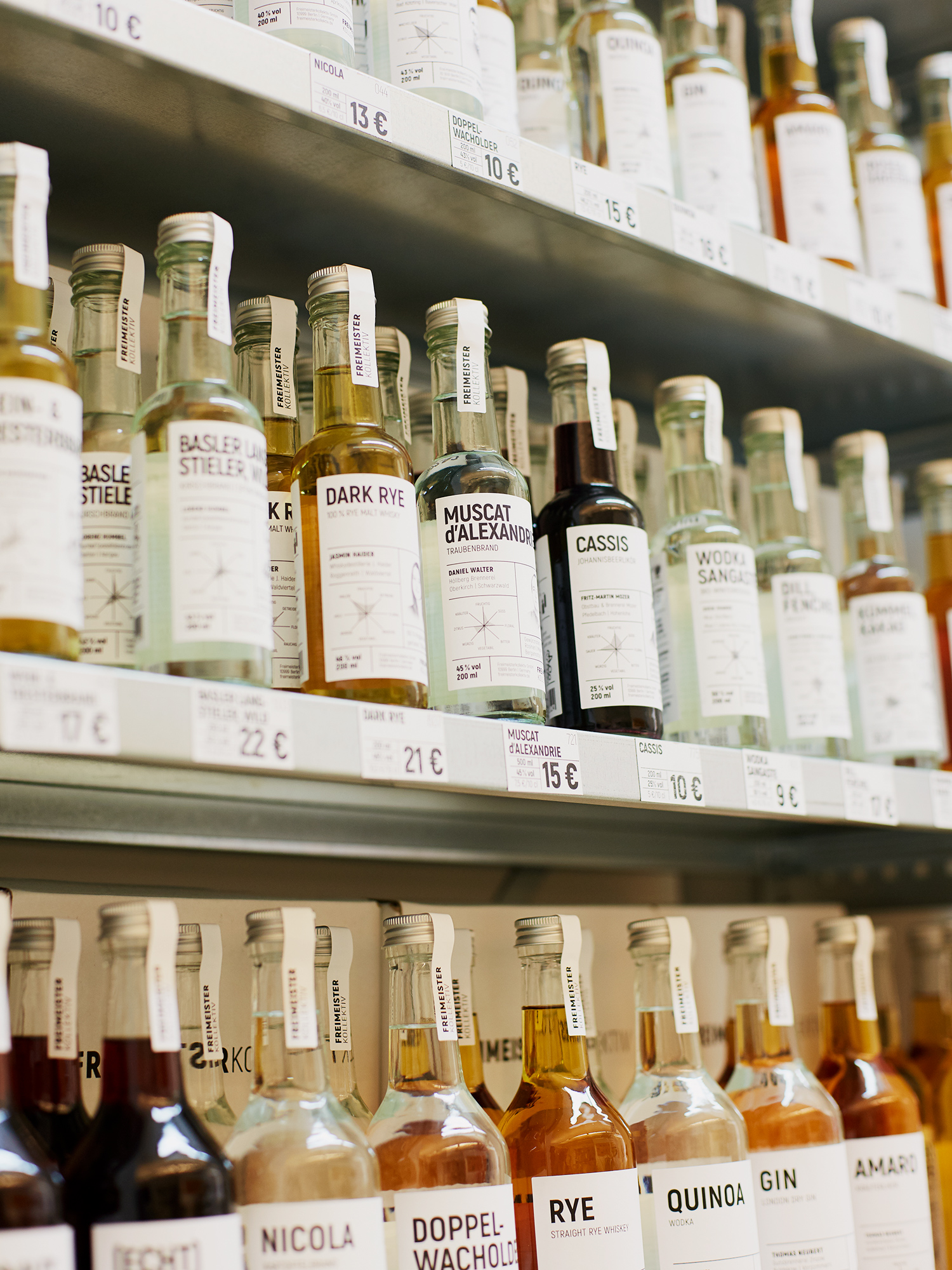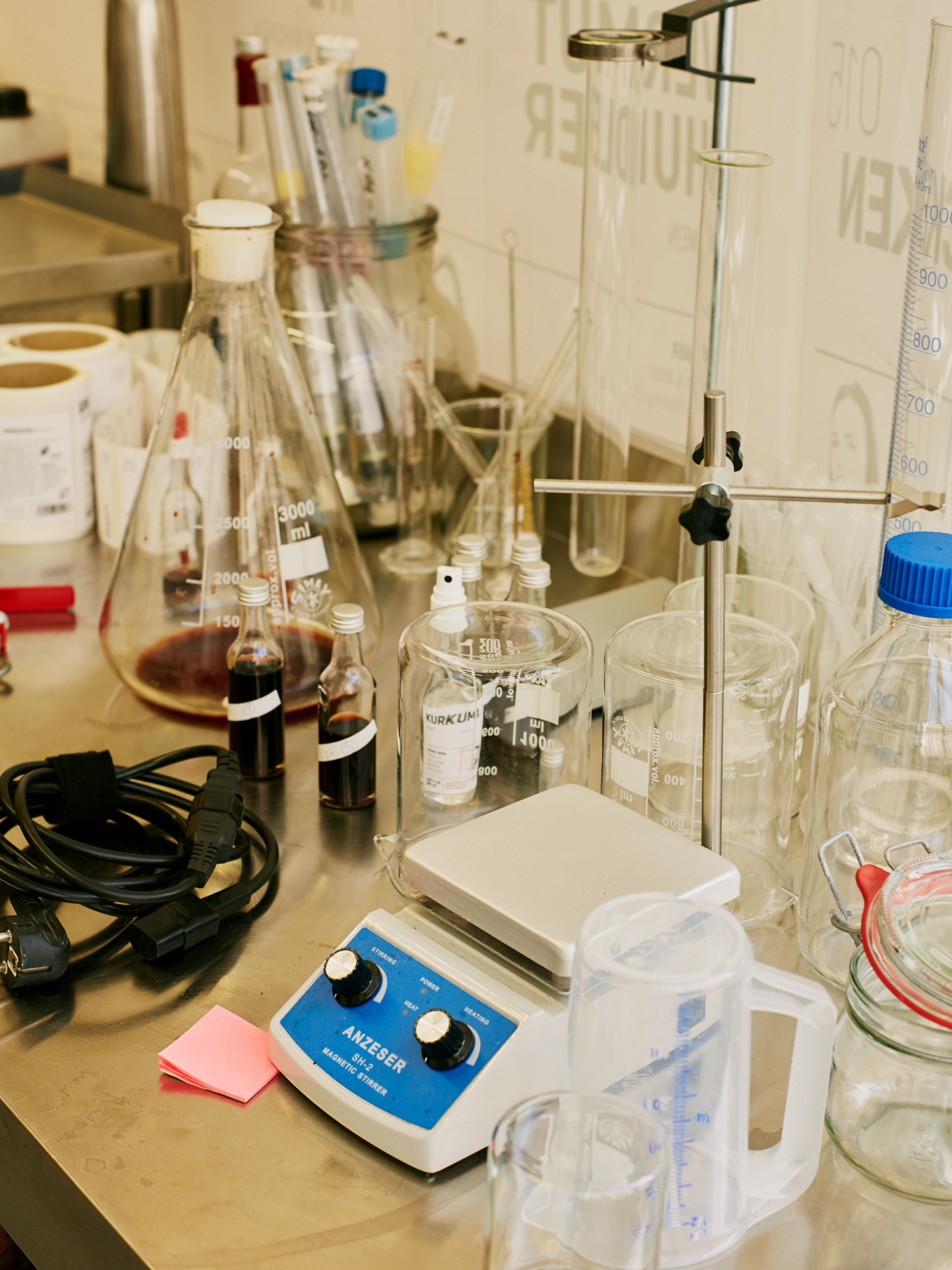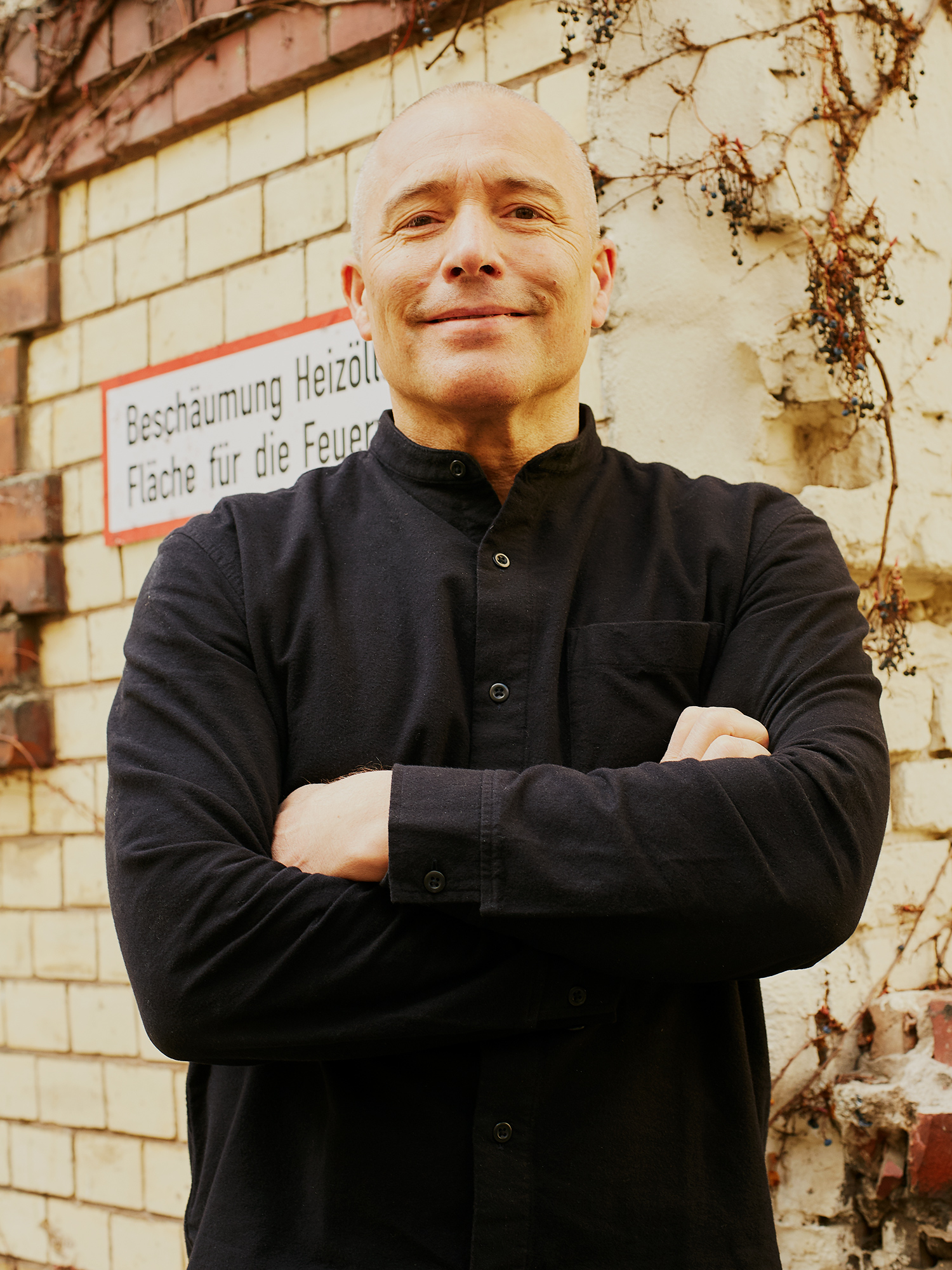Berlin’s local clubs are the object of envy for avid music lovers around the globe. Only those who have experienced it could understand the palpable passion and distinct world of Berlin’s nightlife. It has a value that’s unexchangeable with anything else. There is, however, another facet to Berlin; ingenious bars and their patrons. These components play an integral role in the make-up of Berlin’s local culture, without a doubt. In the west are historical, high-end bars that look good paired with a cigar, while in the east are popular bars with good music on par with clubs and a crowd of unique artists and creators. Also, there are pubs loved by the local elderly population, stylish restaurant bars designed by a famous architect, and more. This sheer variety is the result of the vast number of bars. Each place births its own culture, and the lives of people from all walks of life intersect there. This is what Berlin’s bar culture is like.
An acquaintance introduced me to someone well-versed in Berlin’s bar culture: Theo Ligthart, the founder of the craft spirits brand Freimeisterkollektiv and a pioneer of craft spirits. They offer organic spirits with guaranteed quality that use no artificial sweeteners or additives and work in cooperation with the top distilleries and esteemed bartenders from Beckett’s Kopf in Prenzlauer Berg and so forth.
Perhaps the “Germany is known for beer” stereotype is a thing of the past. We got Theo to talk about Berlin-made craft spirits.
What does the pioneer of craft spirits aim to do in the Japanese market?
Kreuzberg is known for its diverse clubs and bars and as a base for many creators and artists. This district is home to the Freimeisterkollektiv office, located in a quiet placebehind a lush park. While trying out their newly made spirits, I threw one question after the other to Theo in their unique laboratory-like office filled with rows of stills with the flavor of the spirits written on them.
——How was your craft spirits brand Freimeisterkollektiv born?
Theo Ligthart (Theo): I started Freimeisterkollektiv because I wanted to work on a traditional German-born spirits brand. We partnered up with small, independent distilleries and leading bartenders and established the brand in 2016. Our main clients are bars, restaurants, wine shops, and liquor shops, but it’s still tough selling in small amounts. We’re testing out how we can develop the brand in a good way, from networking to securing distribution.
——How did you look for distilleries? Wasn’t it hard to find small, high-quality ones?
Theo: Currently, we have about 30 types of spirits, and each type is made in different distilleries. Many are made in Germany. Of course, distillers must create a good product, but aside from that, I value their identity and philosophy and choose accordingly. Regarding the distilleries, I gathered information about them for years before I started Freimeisterkollektiv. I researched who was making what at where. I exchanged information by participating in competitions and also gained information from acquaintances, friends, delivery staff, and suppliers. Then, I spoke with distillers interested in my concept and direction and slowly created a network. Thanks to that, I was blessed with great partners.
——The bottle designs are unique, as they’re all different and have the face of the distiller on them. You can say it’s a trademark of Freimeisterkollektiv. A lot of organically harvested vegetables are transparent about their farmers too. By doing the same thing with your spirits, are you guaranteeing the quality and safety of the products?
Theo: The biggest reason for that is I wanted people to know everything about the product when they look at it at a store. Not only is the distiller’s face on the bottle, but the details of the ingredients are on there so people could know what it tastes like as well. I think there’s no need for every spirits bottle to be the same, and no need to use an expensive and special one. The selling point of Freimeisterkollektiv is what’s on the inside; the spirits are fundamental. And it’s easy to know what sort of spirits they are. Another trait is how the names are one of a kind.
——The details about the spirits are easy to read, and it’s helpful for those who don’t know much about them. I presume it’s tough to choose from 30 types. Which one is popular?
Theo: The Speckbirne and Doppelwacholder are our bestsellers. Our gins and whiskeys are popular too.
——Everybody has the stereotypical idea that Germany is known for beer. What about spirits? Is there a demand for that?
Theo: This isn’t well-known, but Germany has a long history of spirits. There are many small spirits distilleries here and there, and they produce their original alcohol using fruits and grains as the main source. There are famous whiskey distilleries in the mountains of Switzerland and Austria, which are neighboring countries, where I learn about craftsmanship and gain knowledge.
——You were entering other European markets outside of Germany when you were hit with lockdowns because of covid. For about a year, German bars couldn’t open their doors. It’s been rough. How has this affected you?
Theo: Our biggest clients are bars, so we didn’t get orders coming in because they weren’t open. However, we sell the products online, and we were also able to sell the spirits to retailers, wine shops, and liquor stores just like always. In addition, we were developing new flavors with our partners, professional bartenders. We were hugely affected by lockdowns, but I think of it as a change of environment. It was important for me to devote my time to developing flavors during that time.
——I’m excited to see how people react to the new flavors. Although the lockdown is over, it’s still hard doing business with foreign countries. Why do you want to expand to Japan?
Theo: Japan has a deep, beautiful bar culture. I think it’s thriving. Similar to gourmet countries like France and Italy, there are many people in Japan with refined palates. They know what tastes good. Our partnership is based on a strong, trusting relationship, so I’m confident we could make great flavors. We have good education and experience, so it’s not hard expanding to markets in other countries. We can provide ideas that would match people with refined palates in Japan.
——In Japan, there is a lot of domestic craft gin, beer, and whiskey. It’s a trend. It seems like you have competition in Japan, but what do you think about that?
Theo: I don’t only want to sell Freimeisterkollektiv products in Japan. We want to produce products in Japan. I want us to establish a partnership with distillers and bartenders we could trust, just like in Germany, and develop original Japanese spirits. I have many ideas for that and am looking for good connections. In Denmark, we’ve already started producing and selling products.
It’s a well-known fact that Japanese sake made by famous breweries is spreading all over Europe via retailers, but what we at Freimeisterkollektiv are trying to do is the reverse. On top of knowing that there’s a history of German craftsmanship in any field, I was happy to see that Japanese cuisine culture is acclaimed worldwide.
“Once our business grows in Japan, I want to visit again. The other day, I received shochu-based gins made in Kyushu. They were named spring, summer, and fall. Summer was fresh, and fall had the aroma of the forest. It was interesting how each aroma and flavor was different, much like the seasons in Japan.” Theo has been to Japan two or three times ten years ago. Looking back, he spoke about the country with a smile.
Theo Ligthart
Theo Ligthart is the founder of Freimeisterkollektiv, which he established alongside his two partners. He is a true pioneer among Germany’s distillers. His products like Das Korn and Steinreich have won many awards. In 2012, Ligthart founded Craft Spirits Berlin, which became an event that shed light on Europe’s leading craft spirits distilleries. He’s currently creating Freimeisterkollektiv’s program in cooperation with independent distillers and is involved in developing each product.
Photography Hinata Ishizawa
Translation Lena Grace Suda
Special Thanks Junichi Yaguchi(Studio Y), Sayaka Shimahara






